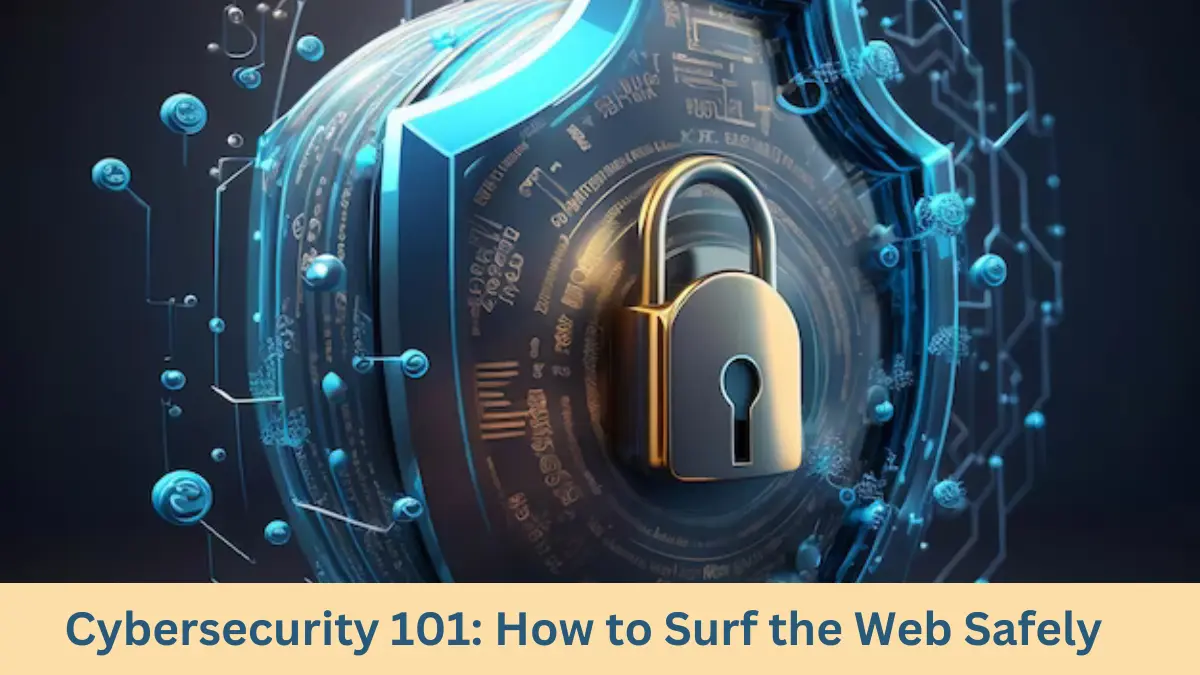In today’s digital age, the internet has become an integral part of our daily lives, offering endless possibilities for communication, learning, and entertainment. However, this vast digital landscape is also fraught with risks and potential threats to our privacy and security.
Cybersecurity is more critical than ever, safeguarding our personal information from cybercriminals and other malicious actors.
This guide aims to equip you with the essential knowledge and tools to surf the web safely, protect your digital footprint, and ensure your online experience is secure and enjoyable.
Use Strong Passwords
One of the simplest yet most effective steps you can take to enhance your online security is to create complex and unique passwords for every online account.
A strong password typically includes a mix of upper and lower-case letters, numbers, and special characters, making it difficult for cybercriminals to crack.
Avoid using easily guessable information like birthdays, names, or common words. Since managing numerous complex passwords can be challenging, consider utilizing a reputable password manager. These tools not only store your passwords securely but also help in generating strong passwords and filling them in automatically when you need to log in, streamlining your online experience while maximizing security.
Enable Two-Factor Authentication (2FA)
Two-factor authentication (2FA) adds an extra layer of security to your online accounts, significantly reducing the likelihood of unauthorized access.
By requiring a second form of verification in addition to your password, such as a temporary code sent to your mobile device or email, 2FA ensures that even if someone manages to guess or steal your password, they would still need this second factor to gain entry.
It’s a simple step that can drastically improve your security online, and it’s highly recommended to enable this feature on all platforms that support it.
Keep Your Software Updated
Regularly updating your operating system, web browsers, and any installed plugins or apps is crucial for protecting against vulnerabilities and security exploits. Developers frequently release updates that patch security holes and improve the overall stability of their software.
Cybercriminals often exploit known vulnerabilities in outdated software to gain unauthorized access to systems and data.
By ensuring your software is up-to-date, you minimize the risk of being targeted by such attacks. Most software can be set to update automatically, making this an easy yet effective step in maintaining your cybersecurity.
Use Secure Connections
Whenever you browse the web, make it a habit to look for “HTTPS” in web addresses. The “S” stands for “Secure,” indicating that the connection to the site is encrypted.
This encryption ensures a more secure transmission of data between your browser and the website, thwarting eavesdroppers from intercepting any information you exchange, such as credit card details or login credentials. Not all websites use HTTPS, so be wary of sharing sensitive information on sites that only use HTTP.
Be Wary of Suspicious Emails and Links
Phishing attacks are a common method used by cybercriminals to trick individuals into revealing personal information or downloading malware.
These attacks often come in the form of suspicious emails, seemingly from reputable sources, but with malicious intent. It’s crucial to exercise caution with any links or attachments in emails, especially if the source is unknown or appears suspicious.
Avoid clicking on links or downloading attachments from such sources to protect yourself against these types of cyber threats. By being vigilant and questioning the authenticity of unexpected communications, you can significantly reduce your risk of falling victim to phishing scams and malware infections.
Use a VPN for Public Wi-Fi
Using public Wi-Fi networks without protection can expose your personal information to potential cyber threats. To safeguard your data in these situations, employing a Virtual Private Network (VPN) is highly recommended.
A VPN encrypts your internet connection, rendering your online activities virtually invisible to others on the same network. This added layer of security is crucial, especially when performing sensitive operations such as banking or online shopping on public Wi-Fi.
By routing your internet traffic through a secure, private network, a VPN ensures that your data remains confidential, significantly reducing the risk of cyber espionage or data theft.
Be Mindful of Your Digital Footprint
Every piece of personal information you share online can be a potential entry point for cybercriminals. Think twice before sharing details such as your full name, address, or birthdate.
Limit the amount of personal data you make available on social media and other websites. Cyber thieves often use such information to crack security questions, guess passwords, or conduct targeted phishing attacks. The less personal information you share online, the smaller your digital footprint and the harder it becomes for malicious actors to exploit your identity.
When you open a website where you’ll need to enter confidential information, make sure they have an SSL certificate. This certificate ensures the website has a secure connection, which protects your information from being intercepted by hackers. It’s usually at the footer of the website and can be identified by a padlock icon.
For example, FanDuel is a sports betting and gambling website that has an SSL certificate for user security. So, if you decide to join FanDuel Casino and use your credit card, you can be assured that your information is secure. It’s essential to look for this certificate when making transactions online to ensure the safety of your data.
Conclusion
In conclusion, navigating the digital landscape with caution and employing robust cybersecurity measures is more crucial than ever in our interconnected world.
Adhering to these practices not only protects you from becoming a target of cybercriminal activities but also fosters a safer online environment for everyone.
Always remember your cybersecurity is an ongoing process that necessitates awareness, education, and proactive measures. Stay informed, stay secure, and continue to prioritize your digital well-being.
Table of Contents
Toggle


